Emotional Deprivation Quotes & Sayings
Enjoy reading and share 12 famous quotes about Emotional Deprivation with everyone.
Top Emotional Deprivation Quotes
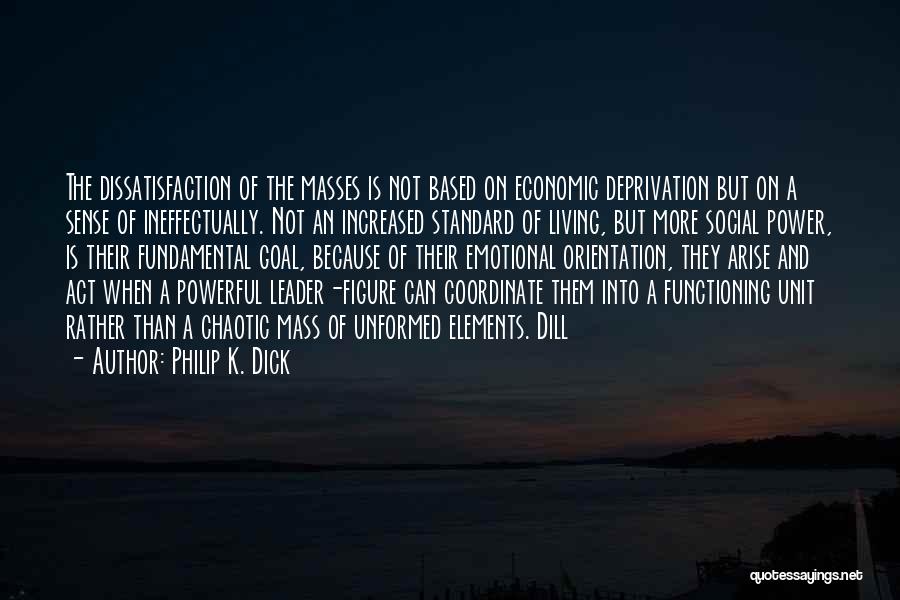
The dissatisfaction of the masses is not based on economic deprivation but on a sense of ineffectually. Not an increased standard of living, but more social power, is their fundamental goal, because of their emotional orientation, they arise and act when a powerful leader-figure can coordinate them into a functioning unit rather than a chaotic mass of unformed elements. Dill — Philip K. Dick

Every time we buy something we deepen our emotional deprivation and hence our need to buy something. — Philip Slater
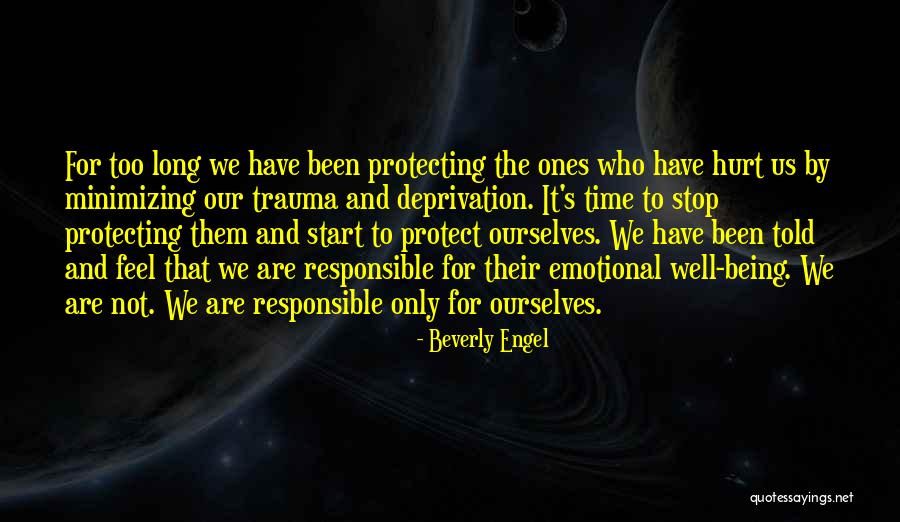
For too long we have been protecting the ones who have hurt us by minimizing our trauma and deprivation. It's time to stop protecting them and start to protect ourselves. We have been told and feel that we are responsible for their emotional well-being. We are not. We are responsible only for ourselves. — Beverly Engel

It doesn't matter if you come from money or you are poor: If your family has already made you feel that you are not worthy, you begin to believe it, and when someone comes along and tells you that you are beautiful/special/wonderful and showers you with attention and gifts, or offers you money when you desperately need it, you are vulnerable and ready to trust — Patti Feuereisen
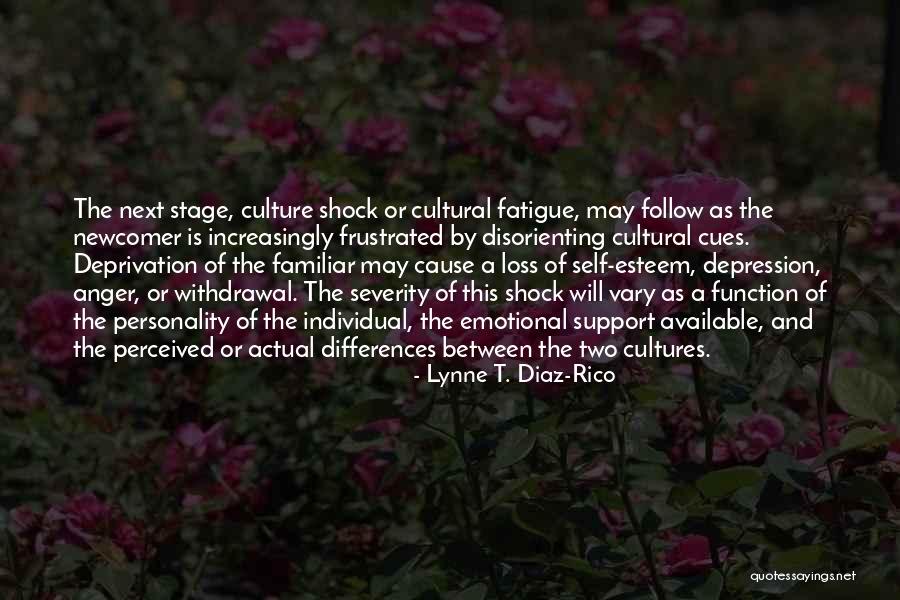
The next stage, culture shock or cultural fatigue, may follow as the newcomer is increasingly frustrated by disorienting cultural cues. Deprivation of the familiar may cause a loss of self-esteem, depression, anger, or withdrawal. The severity of this shock will vary as a function of the personality of the individual, the emotional support available, and the perceived or actual differences between the two cultures. — Lynne T. Diaz-Rico
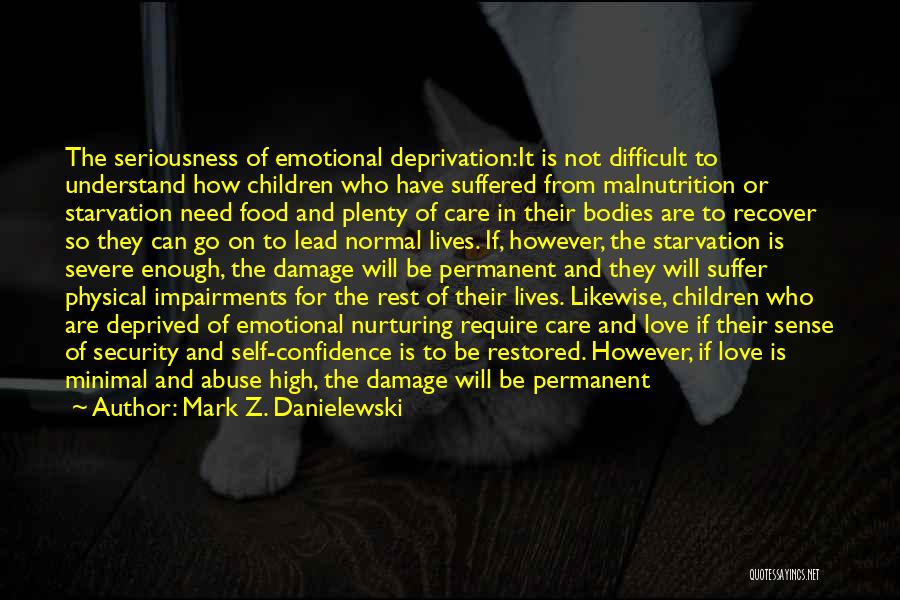
The seriousness of emotional deprivation:
It is not difficult to understand how children who have suffered from malnutrition or starvation need food and plenty of care in their bodies are to recover so they can go on to lead normal lives. If, however, the starvation is severe enough, the damage will be permanent and they will suffer physical impairments for the rest of their lives. Likewise, children who are deprived of emotional nurturing require care and love if their sense of security and self-confidence is to be restored. However, if love is minimal and abuse high, the damage will be permanent and the children will suffer emotional impairments for the rest of their lives. — Mark Z. Danielewski
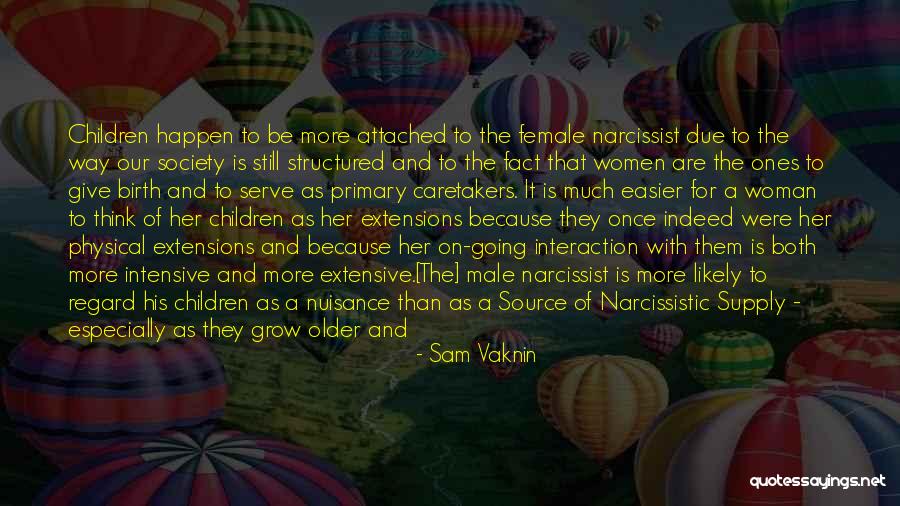
Children happen to be more attached to the female narcissist due to the way our society is still structured and to the fact that women are the ones to give birth and to serve as primary caretakers. It is much easier for a woman to think of her children as her extensions because they once indeed were her physical extensions and because her on-going interaction with them is both more intensive and more extensive.
[The] male narcissist is more likely to regard his children as a nuisance than as a Source of Narcissistic Supply - especially as they grow older and become autonomous.
With less alternatives than men, the narcissistic woman fights to maintain her most reliable Source of Supply: her children. Through insidious indoctrination, guilt-formation, emotional sanctions and blackmail, deprivation and other psychological mechanisms, she tries to induce in her offspring dependence which cannot easily be unraveled. — Sam Vaknin
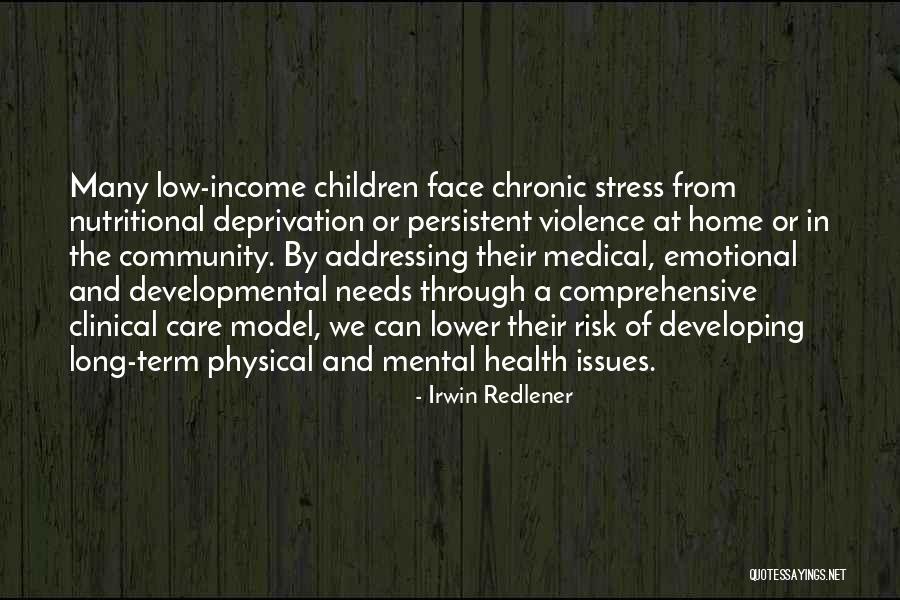
Many low-income children face chronic stress from nutritional deprivation or persistent violence at home or in the community. By addressing their medical, emotional and developmental needs through a comprehensive clinical care model, we can lower their risk of developing long-term physical and mental health issues. — Irwin Redlener
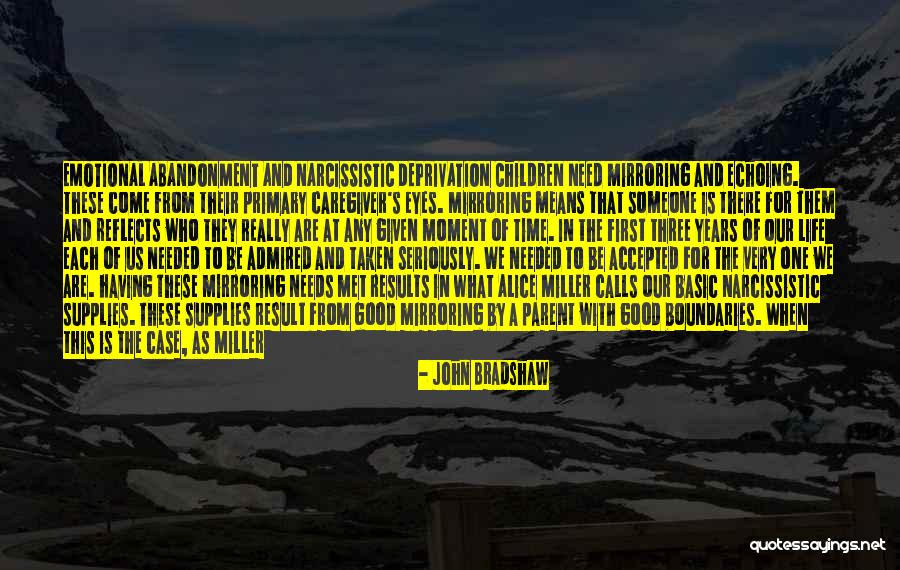
EMOTIONAL ABANDONMENT AND NARCISSISTIC DEPRIVATION Children need mirroring and echoing. These come from their primary caregiver's eyes. Mirroring means that someone is there for them and reflects who they really are at any given moment of time. In the first three years of our life each of us needed to be admired and taken seriously. We needed to be accepted for the very one we are. Having these mirroring needs met results in what Alice Miller calls our basic narcissistic supplies. These supplies result from good mirroring by a parent with good boundaries. When this is the case, as Miller states in The Drama of the Gifted Child, the following dynamics take place: 1. The child's aggressive impulses can be neutralized because they do not threaten the parent. 2. The child's striving for autonomy is not experienced as a threat to the parent. — John Bradshaw

People want to be loved; failing that admired; failing that feared; failing that hated and despised. They want to evoke some sort of sentiment. The soul shudders before oblivion and seeks connection at any price. — Hjalmar Soderberg
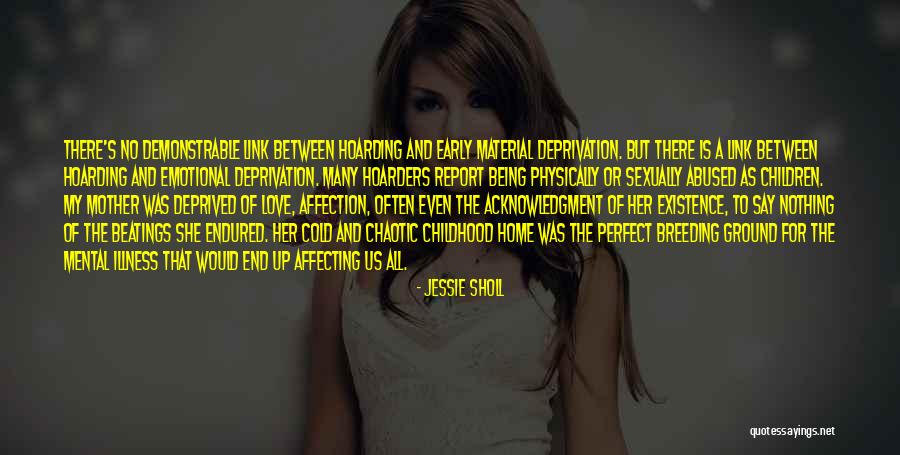
There's no demonstrable link between hoarding and early material deprivation. But there is a link between hoarding and EMOTIONAL deprivation. Many hoarders report being physically or sexually abused as children. My mother was deprived of love, affection, often even the acknowledgment of her existence, to say nothing of the beatings she endured. Her cold and chaotic childhood home was the perfect breeding ground for the mental illness that would end up affecting us all. — Jessie Sholl

While they suffered an irreparable loss, my children are still fortunate. Nothing will bring their father back, but our circumstances have softened the blow. This is not the case for many children facing heartbreaking difficulties. Two out of ten U.S. children of all backgrounds live in poverty, and one-third of black and close to one-third of Latino children are poor. Forty-three percent of children of single mothers live in poverty. More than two and a half million children have a parent in jail. Many children face serious illness, neglect, abuse, or homelessness. These extreme levels of harm and deprivation can impede children's intellectual, social, emotional, and academic development. We — Sheryl Sandberg





